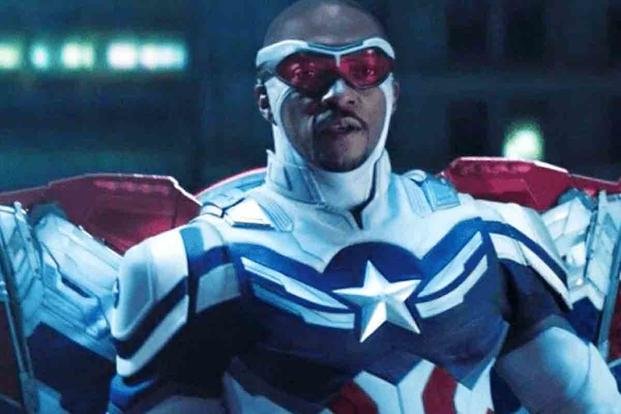
A CRITICAL LOOK AT THE MCU’S LATEST DEVELOPMENTS: CAPTAIN AMERICA 4 AND BEYOND

The Marvel Cinematic Universe (MCU) has been a dominant force in the film industry for over a decade, revolutionizing the concept of interconnected storytelling across multiple film franchises. However, recent developments suggest that the MCU is encountering a series of challenges that could shape its future trajectory.
A prime example of these challenges is the production of “Captain America 4.” This film is noteworthy for its shift in focus from Chris Evans’ iconic portrayal of Captain America to Falcon, a character who has transitioned into this role following the events of “Avengers: Endgame.” However, reports of poor test screenings for “Captain America 4” have raised concerns. The absence of Chris Evans, who has become synonymous with the character, is particularly conspicuous and has led to speculation about the film’s direction and its potential appeal to long-time fans.
The MCU’s decision to explore stories centered around characters who were previously in supporting roles is a looking to be a bad move. This strategy is exemplified not only in “Captain America 4” but also in the Disney+ series “The Falcon and the Winter Soldier.” While these characters offer fresh perspectives and are capable of carrying their narratives, there is a growing concern among fans and critics alike that they might not resonate with audiences to the same extent as their more established counterparts. The question arises: can these characters maintain the same level of box office success and cultural impact as the original Avengers?
This concern is further compounded by Marvel Studios’ recent decisions to delay several highly anticipated films, including “Deadpool 3,” “Thunderbolts,” and “Blade.” Delays in major projects like “Deadpool 3,” which has a significant fan following, point towards a strategic rethinking within the studio. These postponements might be indicative of Marvel taking a more cautious approach in response to the shifting landscape of the superhero genre and audience expectations.
Marvel’s casting and character choices have also been a topic of debate. The introduction of an Israeli version of Captain America and the return of Liv Tyler as Betty Ross in upcoming projects have elicited mixed reactions from the audience. These decisions highlight the intricate balance Marvel must maintain in its storytelling, especially considering its global audience. The inclusion of diverse characters is essential for the evolution of the MCU, but it also brings with it the challenge of navigating various cultural sensitivities and expectations.
Looking ahead, Marvel Studios is preparing for the release of “Secret Wars,” a project that holds the potential for a resurgence in the MCU’s popularity. “Secret Wars” could serve as a pivotal moment, possibly introducing new characters and narratives that could redefine the future of the MCU. However, the success of this and subsequent phases will largely depend on Marvel’s ability to adapt to the rapidly changing preferences of its audience and the evolving dynamics of superhero cinema.
Marvel’s journey thus far has been groundbreaking and transformative for both the film industry and its audience. However, the path ahead appears fraught with challenges. The studio is at a crossroads, needing to balance the legacy of its beloved characters with the introduction of new ones, all while navigating an increasingly complex and competitive entertainment landscape. The question remains: will Marvel be able to captivate its audience with this new direction, or will it need to reassess and possibly recalibrate its strategy in response to these emerging challenges? Only time will reveal the outcome of these pivotal decisions in the MCU’s storied history.










